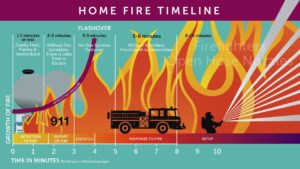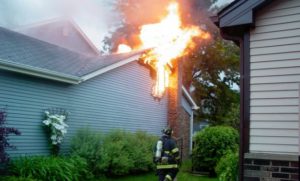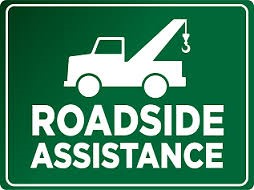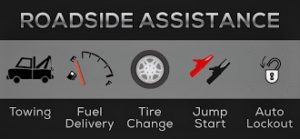Home Fire Safety Tips – October 2019
Did you know that cooling and heating are the leading causes of home fires and fire injuries? Did you know that November and December are the peak months for fire-related deaths? With the holidays right around the corner and the weather getting colder, now is the perfect time to review and practice fire safety.
Safety Tips When Cooking:
- Be alert; if you are sleepy or have consumed alcohol, don’t use the oven or stove-top.
- Stay in the kitchen while you are frying, grilling, boiling or broiling food.
- When simmering, baking or roasting, check the food regularly, remain in the kitchen while cooking and use a timer.
- Keep anything that can catch fire away from your stove-top.
Heating is the second leading cause of death. Heating safety tips:
- Keep all flammables, like paper, clothing, bedding, drapes or rugs, at least 3 feet from a space heater, stove or fireplace.
- Never leave portable heaters and fireplaces unattended; turn off heaters and make sure fireplace embers are extinguished before leaving the room.
- If you must use a space heater, place it on a level, nonflammable surface, like ceramic tile, not on a rug or carpet.
- Keep children and pets away from space heaters.
- When buying a space heater, look for models that shut off automatically if the heater falls over.
Other top causes of fire include smoking, electrical problems and candles. To minimize risks:
- Institute a “no smoking” policy in the house.
- Check all cords and replace any that are frayed or have bare wires.
- Switch to flame-less candles.
- Keep matches and lighters high and out of children’s reach in a locked cabinet.
Working Smoke Alarms are a Must
About three out of five deaths happen in homes with no smoke alarms or working smoke alarms. Smoke alarms are a key part of a home fire escape plan providing early warning reducing your risk of dying in a fire.
- Install smoke alarms on every level of your home, inside bedrooms and outside sleeping areas on the ceiling or high on the wall.
- Keep smoke alarms away from the kitchen, at least 10 feet from the stove, to reduce false alarms.
- Use special alarms with strobe lights and bed shakers for people who are hard of hearing or deaf.
- Test smoke alarms monthly.
Create and Practice a Fire Escape Plan
In the event of a fire, remember every second counts, so you and your family must always be prepared. Escape plans help you get out of your home quickly. Twice a year you should practice a home fire escape plan with your family.
Tips to consider when preparing this plan include:
- Find two ways to get out of each room in the event the primary way is blocked by fire or smoke.
- A secondary route might be a window onto a neighboring roof or a collapsible ladder for escape from upper story windows.
- Make sure that windows are not stuck, screens can be taken out quickly, and that security bars can be properly opened.
- Practice feeling your way out of the house in the dark or with your eyes closed.
- Teach children not to hide from firefighters.




